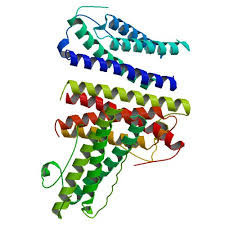The pegfilgrastim biosimilar Udenyca (pegfilgrastim-cbqv) is a pegylated, long-acting form of filgrastim (granulocyte colony-stimulating factor [G-CSF]). It is approved by the US Food and Drug Administration (FDA) and the European Medicines Agency (EMA) as a biosimilar of the originator pegfilgrastim (Neulasta) for febrile neutropenia in patients receiving myelosuppressive chemotherapy [1, 2].
Biological therapies, such as pegfilgrastim, can elicit an immune response, measured as circulating anti-drug antibodies (ADAs), which may impact their bioavailability, efficacy and safety [3]. As such, these therapies undergo extensive immunogenicity profiling during their clinical development. For the approval of biosimilars, regulatory agencies require a totality of evidence that includes analytical similarity and a clinical assessment that demonstrates similar immunogenicity, in addition to similar pharmacokinetics (PK), efficacy (or pharmacodynamics [PD]) and safety [4, 5].
The PK and PD bioequivalence and similarity in safety profile between pegfilgrastim-cbqv and originator pegfilgrastim has been previously reported [6]. In a more recent report by Civoli et al., the immunogenicity of pegfilgrastim-cbqv was compared to pegfilgrastim based on data from three clinical studies [7]. Plasma samples were tested for ADA presence and titre. ADAs that are reactive to the G-CSF moiety of pegfilgrastim-cbqv (or originator pegfilgrastim) may impact efficacy by blocking its binding to the G-CSF receptor and may also pose a potential safety concern if they cross-react with endogenous G-CSF. On the other hand, polyethylene-glycol (PEG)-reactive ADAs are of less concern, as they can be present in normal individuals without apparent effect. Therefore, a thorough characterization of ADA binding specificity (G-CSF or PEG) and neutralizing activity was also conducted. The clinical impact of ADAs on PK, PD and safety profiles was also compared between ADA-positive and -negative participants.
Immunogenicity comparison of pegfilgrastim-cbqv and originator pegfilgrastim was conducted in healthy subjects, which is the population most sensitive to detection of immune responses. Participants in the randomized, double-blind, 2-period, parallel-arm study (NCT02418104) received two doses of pegfilgrastim-cbqv or originator pegfilgrastim spaced ≥42 days apart. The incidence of treatment-emergent, persistent ADAs with titre ≥2 was 9.8% (12/122) and 5.0% (6/120) following treatment with pegfilgrastim-cbqv and originator pegfilgrastim, respectively. Most of the ADAs were low titre and bound to the PEG portion of pegfilgrastim-cbqv and none were neutralizing. The ADA response time course and ADA titres were similar between pegfilgrastim-cbqv and originator pegfilgrastim, with ADAs developing rapidly after the first dose and returning to baseline levels at the end of the study, and not increasing after the second dose.
ADA presence in participants receiving pegfilgrastim-cbqv had no apparent effect on PK or PD parameters, similar to originator pegfilgrastim. The overall incidence of adverse events (AEs), incidence of the most common AEs and incidence of injection site reactions were unaffected by ADA status and were consistent with the known safety profile of originator pegfilgrastim.
In pooled analyses using data from three clinical studies with 487 total participants, treatment-emergent ADA incidence after the first dose was comparable after treatment with pegfilgrastim-cbqv or originator pegfilgrastim.
To conclude, the study reported that pegfilgrastim-cbqv has similar immunogenicity to originator pegfilgrastim and showed that treatment-emergent ADAs had no clinically meaningful impact on PK, PD or safety.
Conflict of interest
The authors of the research paper [7] reported conflict of interest, including being employees of Coherus BioSciences or Myovant Sciences and owning stock in Coherus BioSciences. For full details of the authors’ conflict of interest, see the research paper [7].
Abstracted by Katie Pope, Associate Director, Client Services, ApotheCom.
Editor’s comment
Readers interested to learn more about pegfilgrastim biosimilars are invited to visit www.gabi-journal.net to view the following manuscript published in GaBI Journal:
Perspectives on the future of pegfilgrastim biosimilars
Pelmeg®, a biosimilar pegfilgrastim developed in the context of evolving regulatory guidelines
GaBI Journal is indexed in Embase, Scopus, Emerging Sources Citation Index and more.
Readers interested in contributing a research or perspective paper to GaBI Journal – an independent, peer reviewed academic journal – please send us your submission here.
GaBI Journal Citation Impact
2.2 – CiteScore 2021 (calculated on 5 May 2022)
2.3 – CiteScoreTracker 2022 (Last updated on 6 July 2022)
Submit a manuscript to GaBI Journal
Related article
Biosimilars of pegfilgrastim
References
1. GaBI Online - Generics and Biosimilars Initiative. Biosimilars approved in Europe [www.gabionline.net]. Mol, Belgium: Pro Pharma Communications International; [cited 2022 Jul 22]. Available from: www.gabionline.net/biosimilars/general/biosimilars-approved-in-europe
2. GaBI Online - Generics and Biosimilars Initiative. Biosimilars approved in the US [www.gabionline.net]. Mol, Belgium: Pro Pharma Communications International; [cited 2022 Jul 22]. Available from: www.gabionline.net/biosimilars/general/Biosimilars-approved-in-the-US
3. Krieckaert C, Rispens T, Wolbink G. Immunogenicity of biological therapeutics: from assay to patient. Curr Opin Rheumatol. 2012;24(3):306-11.
4. European Medicines Agency. Guideline on similar biological medicinal products containing biotechnology-derived proteins as active substance: non-clinical and clinical issues. [cited 2022 Jul 22]. Available from: www.ema.europa.eu/en/documents/scientific-guideline/guideline-similar-biological-medicinal-products-containing-biotechnology-derived-proteins-active_en-2.pdf
5. U.S. Food and Drug Administration. Scientific considerations in demonstrating biosimilarity to a reference product. [cited 2022 Jul 22]. Available from: www.fda.gov/regulatory-information/search-fda-guidance-documents/scientific-considerations-demonstrating-biosimilarity-reference-product
6. Finck B, Tang H, Civoli F, et al. Pharmacokinetic and pharmacodynamic equivalence of pegfilgrastim-cbqv and pegfilgrastim in healthy subjects. Adv Ther. 2020;37(10):4291-307.
7. Civoli F, Finck B, Tang H, et al. Biosimilar pegfilgrastim-cbqv demonstrated similar immunogenicity to pegfilgrastim in healthy subjects across three randomized clinical studies. Adv Ther. 2022;39(3):1230-46.
Permission granted to reproduce for personal and non-commercial use only. All other reproduction, copy or reprinting of all or part of any ‘Content’ found on this website is strictly prohibited without the prior consent of the publisher. Contact the publisher to obtain permission before redistributing.
Copyright – Unless otherwise stated all contents of this website are © 2022 Pro Pharma Communications International. All Rights Reserved.








 0
0











Post your comment